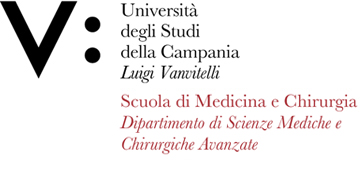Alessandro DELLA CORTE
Insegnamento di CHIRURGIA CARDIACA
Corso di laurea magistrale a ciclo unico in MEDICINA E CHIRURGIA (Sede di Napoli)
SSD: MED/23
CFU: 1,00
ORE PER UNITÀ DIDATTICA: 10,00
Periodo di Erogazione: Primo Semestre
Italiano
| Lingua di insegnamento | Italiano |
| Contenuti | - Chirurgia Cardiovascolare e Chirurgia a Cuore Aperto |
| Testi di riferimento | - Lawrence H Cohn - David H Adams. Cardiac Surgery in the Adult - McGraw-Hill Medical Eds. |
| Obiettivi formativi | Al termine del corso, gli studenti devono conoscere e capire le basi patofisiologiche, i quadri clinici e le indicazioni e tecniche chirurgiche delle più importanti patologie del cuore e dei grossi vasi. Devono aver acquisito la capacità di identificare le più importanti sindromi nella patologia cardiovascolare e discutere con colleghi o informare i pazienti in merito alla gestione clinica e alle opzioni terapeutiche di tali sindromi. |
| Prerequisiti | Conoscenza di: |
| Metodologie didattiche | - Lezioni frontali |
| Altre informazioni | Le slides utilizzate per le lezioni frontali saranno messe a disposizione degli studenti |
| Programma del corso | Programma per argomenti: |
English
| Teaching language | Italian |
| Contents | - Cardiovascular Surgery and Opena Heart Surgery |
| Textbook and course materials | - Lawrence H Cohn - David H Adams. Cardiac Surgery in the Adult - McGraw-Hill Medical Eds. |
| Course objectives | By the End of this Course, the students should know and understand the physiopathological bases, the clinical pictures and indications and techniques of surgical treatment of the most important cardiac and great vessel diseases. They should be able to identify the most important syndromes in cardiovascular disease and discuss with peer or inform patients about their clinical management and therapeutic options. |
| Prerequisites | Knowledge of: |
| Teaching methods | - Lectures |
| Other information | Slides used in the lectures will be made available to the students |
| Course Syllabus | Topics Programme: |








